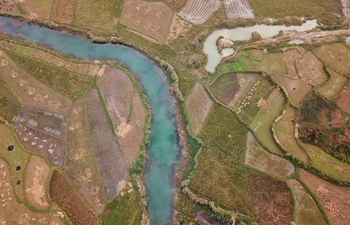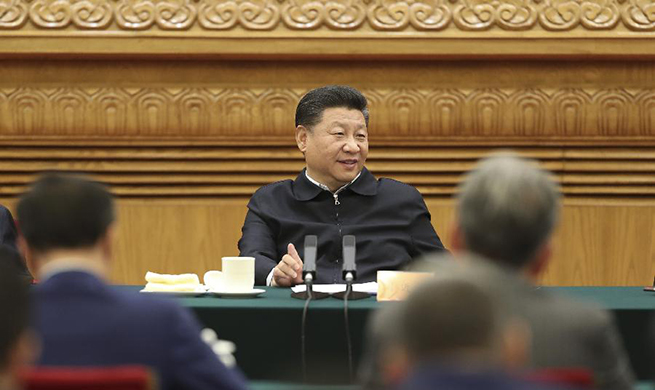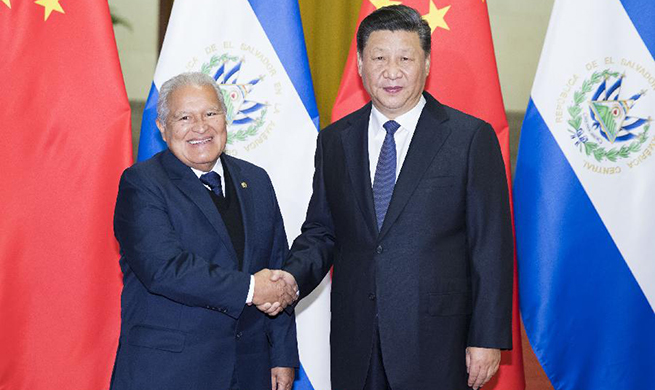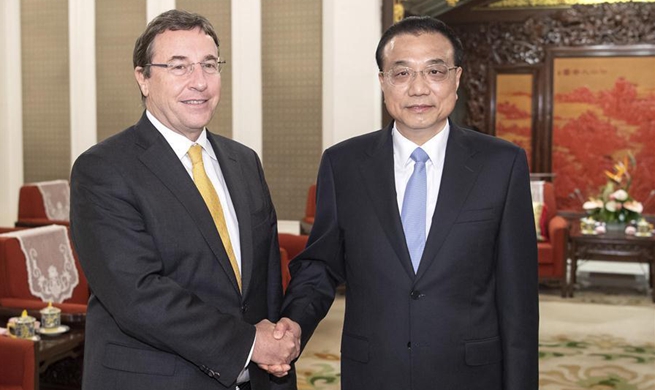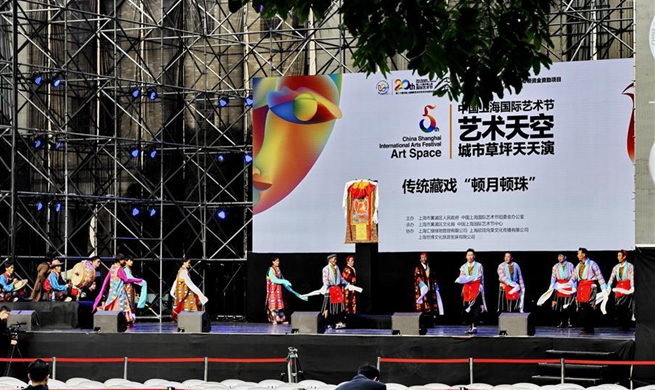by Murad Abdu
ADEN, Yemen, Nov. 1 (Xinhua) -- The Saudi-backed Yemeni government announced on Thursday that it is willing to restart stalled peace talks with the Shiite Houthis for finding solutions to end the country's years-long conflict.
In a statement released by the state-run Saba news agency, the government agreed and renewed its readiness to actively participate in the UN-sponsored talks with rebels who refused to attend previous talks that collapsed in September.
"The Republic of Yemen welcomes all the ongoing efforts aimed at resuming the peace negotiations," the government's statement published by Saba said.
"The Yemeni government is ready to immediately restart talks on the process of confidence-building measures, particularly the releasing of political detainees as well as those who have been abducted," the statement said.
The government accused the Houthi rebels of "intransigence" and being behind the failure of the previous rounds of peace negotiations and cease-fire periods.
"More than nine previous cease-fires were breached by the Houthis who always attempt to exploit the talks to re-positioning or mobilizing their fighters," according to the statement.
The government offered thanks to the United Nations special envoy Martin Griffiths and declared its full support for his efforts to achieve a long lasting peace in the impoverished Arab country.
Just one day ago, Martin Griffiths welcomed the recent calls for the immediate resumption of the political process and measures to reach a cessation of hostilities in Yemen, according to a statement released by his office.
The UN envoy urged all concerned parties to seize this opportunity to engage constructively with current efforts to swiftly resume political consultations, to agree on a framework for political negotiations and confidence-building measures.
Griffiths announced his commitment to bring the warring Yemeni parties to the negotiation table within a month, stressing that dialogue remains the only path to reach an inclusive agreement in the country.
Meanwhile, new batches of newly-recruited Yemeni troops backed by the United Arab Emirates (UAE) arrived in Hodeidah and began preparations for a new offensive against Houthis.
Sources on the ground confirmed to Xinhua by phone saying that thousands of well-armed soldiers arrived in Hodeidah and took their positions to attack Houthi-controlled areas in the Red Sea coast city.
"This time the target will be Hodeidah's port and it is obvious that Houthi won't be able to confront such an all-out offensive," said a field army commander.
The Houthis mobilized their forces and vowed to repulse the pro-government forces from advancing towards Hodeidah.
Scores of Houthi fighters were deployed in many key areas, along main roads and inside the residential neighborhoods in Hodeidah, according to local citizens.
A source close to the country's presidency office confirmed that the internationally-backed President Abdu-Rabbu Mansour Hadi "decided to take the inescapable decision to liberate Hodeidah by using the military force."
"The peace process will be imposed by military action which is the only available solution now," the source said, adding that "recapturing Hodeidah from the Houthi militias will end the people's suffering there."
The Houthis launched a large military campaign and seized the capital Sanaa in late 2014, forcing Yemen's president and his government to flee into the southern port city of Aden.
Saudi Arabia with other Arab countries intervened militarily and began pounding the Houthi-controlled capital Sanaa in March 2015 in response to an official public request.
The internal military conflict between the Houthis and the Saudi-backed Yemeni government recently entered its fourth year, aggravating the suffering of Yemenis and deepening the world's worst humanitarian crisis in the country.
The ongoing fighting between the two warring rivals with daily Saudi-led airstrikes plunged the most impoverished Arab country in the Middle East into more chaos and violence.
Three quarters of the population, or more than 22 million people, urgently require some form of humanitarian help, including 8.4 million people who struggle to find their next meal.


